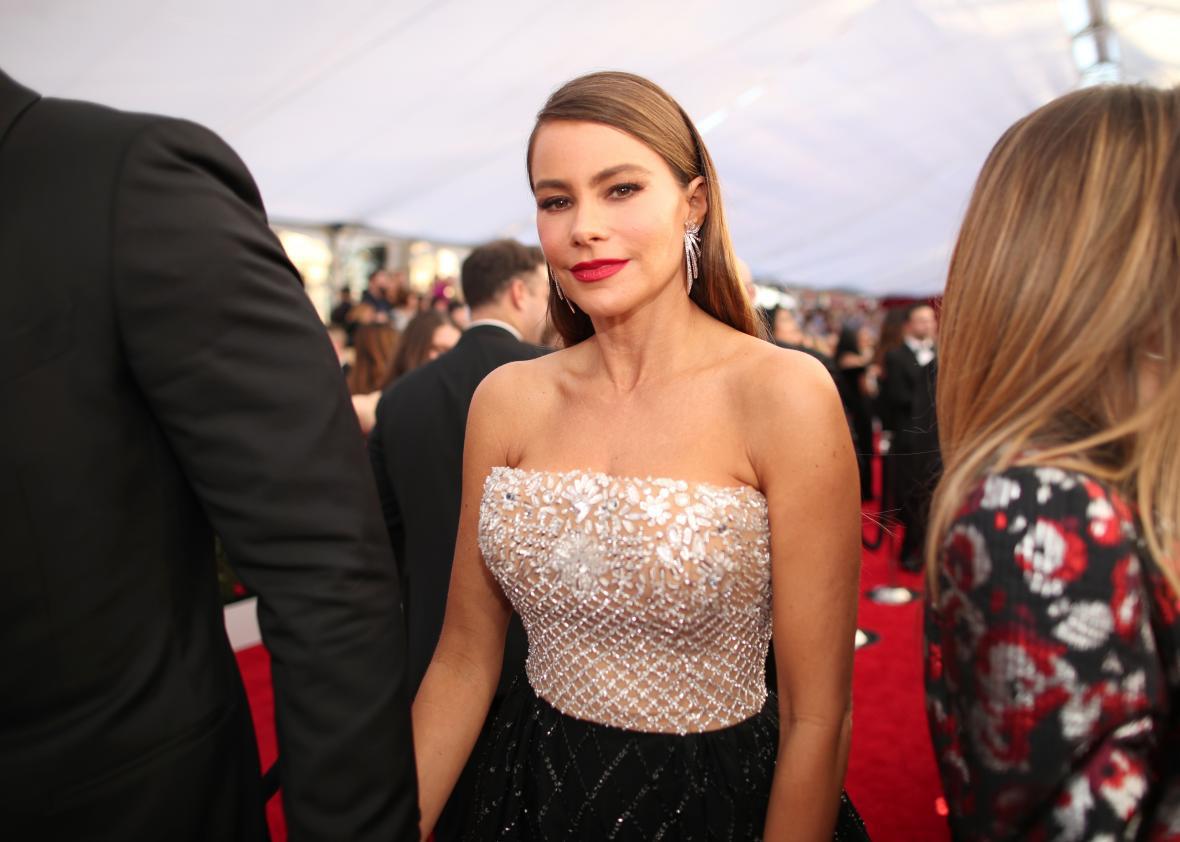After years of battling ex-fiancée Sofía Vergara in court for custody of a pair of frozen embryos they once made together, condiment entrepreneur Nick Loeb might finally be out of luck. Last week, a federal judge in Louisiana dismissed Loeb’s suit, saying that the embryos are “citizens of California,” where Vergara and Loeb conceived and froze them. Thus, the judge ruled, embryos have no legal standing to sue in Louisiana, the only state that gives embryos the right to sue and be sued.
Embryos are frozen when they are just clumps of a few dozen cells, equivalent to a vaginally inseminated egg that would still take another week to become embedded in the uterine wall. Louisiana law deems these cells “juridical persons”—not quite human beings, but deserving of legal rights. In Louisiana, embryos are not merely property of the two people who made them, so any legal disputes must meet “the best interest of the in vitro fertilized ovum.”
That’s the most likely reason why Loeb sued Vergara in Louisiana despite the fact that neither party maintains a residence there.* (Loeb says he chose the state because the couple broke up there; he dropped an earlier California suit because he didn’t want to name his previous girlfriends who’d had abortions.) Actually, Loeb didn’t exactly sue Vergara—the embryos, “Emma” and “Isabella,” did. “Plaintiff EMMA is a female human being at the embryonic stage of life, five days old developmentally,” the “right to live” suit read, claiming that Vergara had “effectively abandoned and chronically neglected” her children by keeping them frozen in a medical tank since 2013. Though Vergara and Loeb had signed a contract when they were together agreeing that the embryos would never be implanted anywhere without both parties’ consent, Loeb wanted to nullify the agreement and implant them in a surrogate.
Over the past couple of years, the Vergara–Loeb embryo battle has become a proxy fight for anti-abortion advocates who think frozen embryos should be treated like people. Anti-abortion groups have funded or filed amicus briefs in the embryo disputes of split-up couples, including the case of a Missouri woman named Jalesia McQueen. In the middle of her own court battle over two frozen embryos (“Noah” and “Genesis”) with an ex-husband who wanted to dispose of them, McQueen founded an organization called Embryo Defense to advocate for all excess embryos in legal limbo. She aggregates news on the Vergara–Loeb case and uses their photos in images made for sharing on social media. The graphics say things like “Sofia says it’s ‘selfish’ to let the embryos be born without both parents being in a loving relationship. Shouldn’t both parents just love the child?” and “Please pray for Sofia Vergara and those she called her ‘frozen babies,’ that she’d open her heart so they could be a blessing in her life.” One pairs a picture of Loeb’s face with the question “what about a father’s right to choose?”
The concept of “a father’s right” to procreate without input from the woman whose egg created the embryo is a favorite rallying cry of the embryo-protector set. Loeb himself made this argument in a 2015 New York Times op-ed with the magnificent headline “Sofía Vergara’s Ex-Fiancé: Our Frozen Embryos Have a Right to Live.” “A woman is entitled to bring a pregnancy to term even if the man objects,” Loeb wrote. “Shouldn’t a man who is willing to take on all parental responsibilities be similarly entitled to bring his embryos to term even if the woman objects?”
The federal judge’s decision against Loeb is only the latest in a string of disappointing court losses for those who believe embryos should be treated like people. When Barack Obama lifted a ban on federal funding for embryonic stem cell research in 2009, he was hit with a lawsuit from one Mary Scott Doe, a “frozen embryo symbolizing all existing frozen embryos.” A federal appeals court ruled that Doe had no standing as an “amorphous” class that could not prove any actual harm. In 2015, a California Superior Court judge ruled that a contract a divorced couple signed at the medical center where they created the embryo prevented either party from taking unilateral custody of the embryos unless one of the parties died. Even McQueen, the founder of Embryo Defense, lost her suit late last year when a St. Louis court ruled that embryos are “marital property of a special character,” not human beings with unalienable rights.
That St. Louis case might be the most promising decision yet for those who believe that no person should be able to incubate an embryo without the consent of the other person whose genetic material it carries. The others, which rest on the tenets of contract law, legal standing, and jurisdiction, say more about how the suits were filed than what rights adults have to the embryos they create. Still, Loeb’s loss could set a welcome precedent in these kinds of cases: Jurisdiction-shopping embryo protectors might find Louisiana to be a less hospitable home for a lawsuit than they’d imagined.
*Correction, August 31, 2017: This piece originally referred to “the most likely reason why Loeb sued Vergara in California, despite the fact that neither party maintains a residence there.” It should have said Louisiana.
